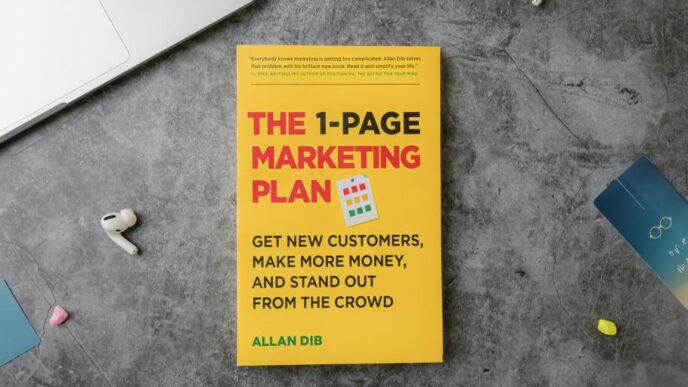Have you ever wondered how that flashy Super Bowl commercial convinced you that you suddenly needed a new car?
Or why you can’t resist trying the latest viral food item even if you weren’t hungry a minute ago? Welcome to the magical world of marketing – where companies attempt to understand your deepest desires in order to sell you products and services.
But marketing isn’t just about getting you to open your wallet. Done right, it can actually provide value to consumers and benefit society as a whole.
What are the positive impacts of marketing like building awareness of important causes, helping innovate new solutions to problems, supporting job growth and the economy, and more?
You may just walk away with a newfound appreciation for how those pesky commercials shape our everyday lives in subtle but surprisingly meaningful ways.
What our world would be without marketing
Imagine walking into a supermarket with no signs to guide you to the milk or cereal, no labels on shelves shouting out “Sale!” or “New!” No commercials telling you about the latest gadget, or ads raving about a new movie release.
You wander the aisles aimlessly looking at indistinguishable boxes and cans trying to figure out what’s inside.
You can’t tell if a new vaccine has hit the shelves or if your favorite sneaker brand released an updated model. Brand names might as well be written in hieroglyphics.
In this bewildering maze, shopping becomes extremely difficult. You aren’t exposed to new innovations that could improve life or even be aware of issues worth supporting or opposing.
Without marketing illuminating everything the modern world has created to meet your needs, you may not find the diabetes medication critical for your health or learn about the political candidate whose policies finally address challenges in your community.
Meanwhile, companies operate in isolation without grasping the evolving desires of people like you. They have no feedback to craft better solutions or increase access.
Surveys, focus groups, and social listening – mainstays of marketing – disappear, removing the transgender between business and consumer.
Companies’ hit-or-miss stabs at products shoot in the dark without targeting specific pain points. And there is no way for ethically minded companies to broadcast their efforts for sourcing eco-friendly materials or giving back to meaningful charities.
This thought experiment reveals how marketing at its best plays a matchmaker between what companies create and what customers need.
Of course, some marketing focuses more on profit-seeking than societal contribution. But keeping the channels of insights, product information, and influence open remains imperative.
In the void without marketing, you have no compass to what could improve life or voice to guide better offerings from companies.
Blind and mute, consumers grapple aimlessly as businesses flail equally in ignorance.
Competent marketing well balanced between economic drivers and ethical responsibility counters this bleak scenario. Most take the everyday presence of marketing for granted.
Yet modern conveniences and progress owe it some thanks for not just selling products but also connecting consumers with innovation.
What are the Benefits of marketing in our society?
Marketing often gets blamed for creating artificial needs, increasing consumerism, and driving up prices as companies pour money into advertising, PR stunts, and paid influencers. However, digital marketing services also provide enormous direct and indirect benefits to individuals and society as a whole.
Job creation and economic growth
From marketers to manufacturers to media – marketing supports employment at every link of the supply chain.
In the US alone, nearly a fifth of all jobs created since the Great Recession can be attributed to the marketing industry.
The pay that companies receive from marketing spend also gets reinvested into hiring more talent, expanding operations, and contributing to economic growth.
Consider direct marketing jobs first. Skilled professionals handle customer research, branding, campaign management, social media engagement, advertising, event planning, and more.
The US Bureau of Labor Statistics forecasts employment for market research analysts and marketing specialists specifically to grow much faster than average over the next decade at over 13% as demand rises.
And indirect support jobs multiply the workforce further – graphic designers, content writers, videographers, media buyers, and logistical coordinators all owe at least part of their livelihoods to marketing activities.
Spending on marketing also stimulates local economies by increasing sales revenue which then funds business expansion.
Local small businesses benefit especially, utilizing marketing to drive neighborhood engagement and visibility.
As companies seek advertising, PR, and events agencies to promote their goods and services, marketing lifts all boats in its cash flow current into these partner businesses.
Market research and product innovation
Many of the products and solutions making life more convenient, healthy, and connected today arose from market research driven by marketing.
The best web design agency Coventry uses analytics and user testing to improve customer experience.
Observing consumer behaviors, gathering feedback through surveys and interviews, and analyzing sales data – these core marketing activities provide critical insights into customer problems and desires.
The innovation process depends on this understanding of people’s unmet needs to ideate meaningful inventions and improvements.
From early agricultural equipment to modern laptops and life-saving medications, much human progress traces back to market research and positioning.
Without marketing analysis helping entrepreneurs recognize the need for new devices, products launch out of sync with user wants and fail to gain traction.
Marketing spots white spaces in the marketplace where people’s needs remain underserved.
The Habit burger grill for example carved out a niche for chargrilled burgers after realizing how the big chains overlooked this regional American style customers craved.
Ongoing marketing also allows iteration after the initial release. App developers use A/B testing and user behavior analytics to refine designs and optimize user experience.
Food and beverage companies issue free samples at grocery stores for shopper feedback on taste preferences and pricing sweet spots.
The customer voice channeled through marketing continues speaking long after product launch, ensuring innovations stay relevant.
Giving Voice to Causes and Social Movements
From civil rights to health awareness campaigns, impactful social movements rely on marketing to broadcast their messages and power change.
An SEO company Coventry recently supported a non-profit’s awareness campaign and increased its website traffic by 40%.
Marketing gets issues in front of people’s eyes quickly and persuasively thanks to decades of research into positioning, narrative framing, and emotion-stirring creative execution.
Where other forms of advocacy fall short, marketing breaks through the noise to move citizens and policymakers alike.
Look at the meteoric rise of the ALS Ice Bucket Challenge, for example. This campaign not only increased donations to combat the disease but also measurably improved public understanding of the condition.
Its innovative concept combined with simple social sharing and video made the message impossible to ignore.
Cause marketing gives similar visibility boosts to the latest environmental threats, highlighting the problems in urgent and engaging ways traditional activism cannot always achieve alone.
And social impact organizations continue optimizing their outreach with marketing best practices.
Surveys show how many citizens remain unaware of persisting injustices around issues like school funding disparities, food insecurity, unequal healthcare access and more based on demographics.
Market research helps nonprofits spot knowledge gaps and target differentiated messaging to marginalized groups. Marketing technology allows grassroots movements to scale impact exponentially faster as well.
Customer Empowerment through Information and Reviews
In the past, customers had limited visibility into company practices or product quality before purchase.
Marketing changes that through informative advertisements, product reviews, help content, and overall industry transparency.
Equipped with more context, people can support brands and offerings that best align with their values and needs.
Consider how nutritional labels allow health-conscious shoppers to compare products at a glance based on ingredients and calories.
Detailed tech spec sheets help customers select electronics with the right processing power and features.
Even less crucial purchases get informed by reviews – you can quickly parse thousands of opinions on the latest beauty products or store coupons to maximize savings.
Access to information further empowers customers to keep companies accountable. Investigative journalism and nonprofit campaigns now team up with marketing to rapidly broadcast unethical working conditions, environmental damage from manufacturing, and other vital contexts about corporate harms.
Excessive choice can sometimes overwhelm, ultimately customers determine where to direct dollars rather than relying on seller claims at face value.
Through effective content marketing, comparisons, and transparency over business practices, enlightened consumers ideally incentivize fairness, quality, and social responsibility.
Businesses then respond with improvements that better satisfy. So marketing continues to shift power into the hands of people.













